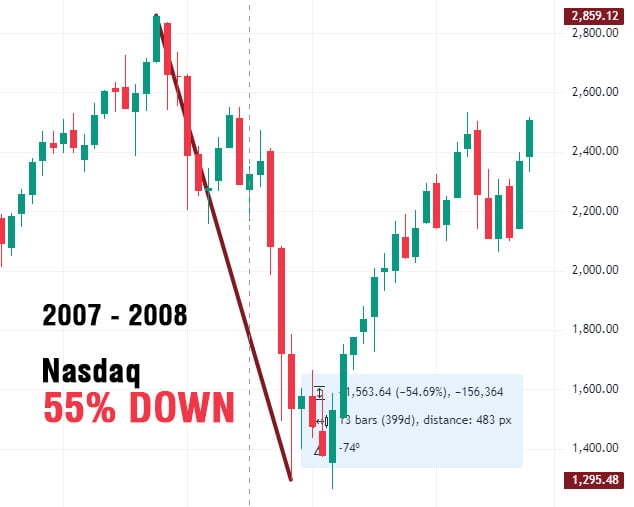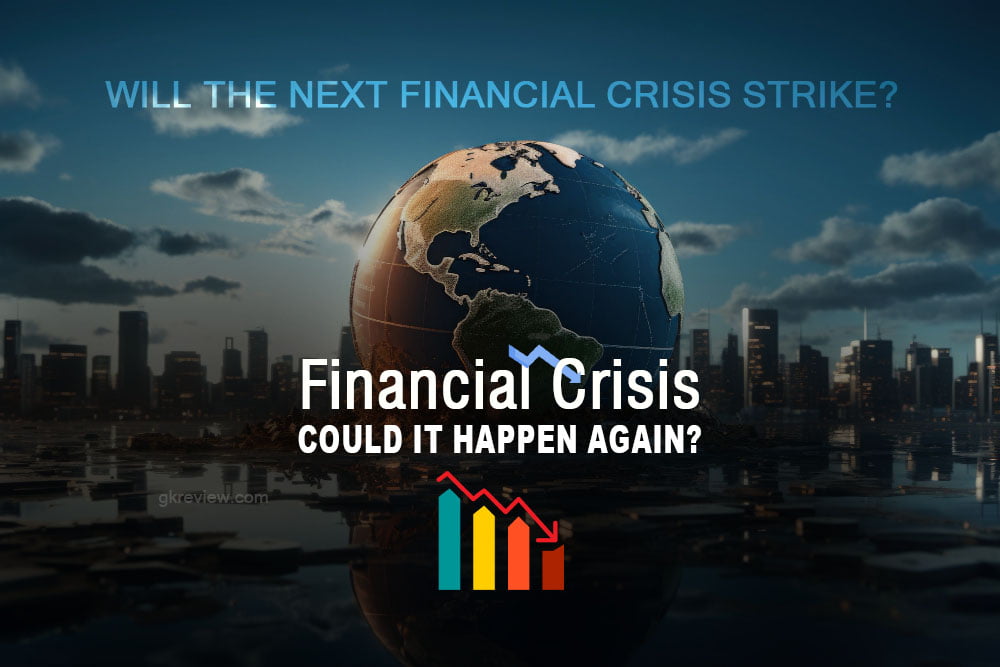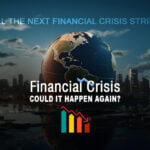Economic Meltdown and Pandemic
When we think of Financial Crisis, the 2008-2007 crisis often comes to mind. It stands out because it is the first significant crisis witnessed by many of us, particularly those born in the 1990s. This event, although not unique in history, was our introduction to the devastating impact of financial instability. For those born after 2000, while they might not recall the financial crisis, they certainly understand the global impact of the coronavirus pandemic, another significant event that brought about economic recession, health issues, and mental stress. Unlike the pandemic, which can be seen as a Natural Disaster, the 2008-2007 financial crisis was a man-made catastrophe, highlighting the perils of human greed and financial mismanagement.
Table of Contents
The 2007-2008 Financial Crisis: A Man-Made Disaster

The Role of Lehman Brothers
The financial crisis of 2007-2008 was largely precipitated by the collapse of Lehman Brothers, a major American financial institution. The fall of Lehman Brothers was not an isolated event but rather the result of years of risky financial practices and greed within the financial industry. The company’s failure led to a domino effect, triggering a global financial meltdown that resulted in millions losing their savings, jobs, and homes. The crisis severely shook public trust in financial institutions and highlighted the need for stringent regulatory measures to prevent such occurrences in the future.
Learn more about the 2007-2008 Financial Crisis on Wikipedia: https://en.wikipedia.org/wiki/2007%E2%80%932008_financial_crisis
The Consequences of the Crisis
The 2008 financial crisis had a big impact. Many businesses closed, and a lot of people lost their jobs. Governments had to save money by cutting spending. The crisis also made many people feel anxious and stressed. It showed how connected the world’s financial system is and how the actions of a few can affect everyone.

At that time, I was studying in 12th standard. Most people told me not to pursue IT-Related Studies in my Undergraduate Degree because they believed the future of IT was doomed. They thought that with the Economic Downturn, jobs in IT would be scarce and unstable. Despite these warnings, I was very confident in the Computer World and its potential. I believed in the importance and resilience of technology, so I chose to take B-Tech IT for my UG. This decision shaped my career and allowed me to follow my passion, even in uncertain times.
To learn more about my journey and background, visit our About Us page.
Could It Happen Again? The Risk of Future Financial Crises
Present Economic Scenario
As we navigate through 2024-2025, the question arises: could another financial crisis of similar magnitude occur? The unfortunate reality is that the risk of future financial crises remains high. Unlike the 2008-2007 crisis, which was triggered by the actions of a single company, future crises may result from the collective actions of multiple companies and individuals. Today’s economic environment is characterized by rapid technological advancements, easier access to credit, and a surge in entrepreneurial activities. While these developments have democratized opportunities, they have also introduced new risks.
Today’s Business World
In the past, Starting a Business required significant expertise and often involved Family Traditions. Only those with substantial knowledge and experience ventured into New Business territories. Today, however, the barriers to entry have been significantly lowered. Anyone with a good idea and access to capital can start a business. While this Democratization of Entrepreneurship is positive in many ways, it also means that many new business owners may lack the necessary financial acumen and experience to navigate the complexities of running a business. This lack of expertise can Lead to Financial Mismanagement and contribute to Broader Economic Instability.
The Pitfalls of Easy Access to Credit

The Temptation of Easy Money
One of the significant changes in the Modern Economy is the easy access to Credit. Banks and financial institutions are more willing than ever to Lend Money, often without rigorous checks and balances. On the one hand, it enables more people to pursue their entrepreneurial dreams. On the other hand, it can lead to over-leveraging and financial instability. For instance, someone interested in starting a Photography Studio might take out a large loan to buy equipment without fully understanding the market dynamics or having a solid business plan. This can lead to a situation where they struggle to repay the loan, leading to financial strain and potential default.
The Impact on Business Practices
The prevalence of easy credit can also impact business practices negatively. To meet loan repayments, businesses might cut corners, compromising on the quality of their products or services. This race to the bottom can affect the entire industry, forcing competitors to lower their prices and reduce their standards to stay afloat. The result is a market saturated with subpar offerings, leading to dissatisfied customers and a general decline in industry standards. Moreover, when businesses are unable to repay their loans, it can lead to a ripple effect, causing financial strain on banks and potentially leading to a broader Financial Crisis.
So, definitely, this has happened over the past few days, months, or even years. Already, some large companies have laid off more employees. You can read about which companies have reduced their workforce in 2024, For more information, click here..
Okay, now you can conduct this survey, following these four key strategies.
Building Financial Resilience: 4 Simple Strategies for Stability Amid Crises
1. Diversification as a Key Strategy

One of the most effective strategies for building financial resilience is Diversification. By spreading investments across various asset classes such as Stocks, Real Estate, Gold, and Savings in Banks, individuals can mitigate risk and protect their wealth from market volatility. Diversification ensures that a downturn in one sector does not wipe out an individual’s entire portfolio. For instance, while stocks might be highly volatile, Real Estate and Gold can provide a more stable investment option, balancing out the overall risk.
2. Prudent Fiscal Management
In addition to Diversification, Prudent fiscal management is crucial for financial stability. This involves disciplined savings, judicious spending, and avoiding unnecessary Debt. By living within their means and building a robust savings cushion, individuals can better weather economic downturns and avoid the financial strain that comes with high levels of debt. Moreover, having an emergency fund that can cover several months of living expenses can provide a safety net during times of financial uncertainty.
3. Avoiding Over-Reliance on Loans
While loans can be a useful tool for Financing Business Ventures, over-reliance on borrowed money can lead to financial instability. It is essential to have a well-thought-out plan for repaying any loans and to avoid taking on more debt than is manageable. Businesses should focus on building sustainable growth models that do not rely heavily on external financing. This might involve reinvesting profits back into the business, managing costs effectively, and exploring alternative financing options such as equity funding.
4. Empowering the Next Generation of Entrepreneurs

Fostering Financial Literacy
To build a resilient economy, it is vital to equip the next generation of entrepreneurs with the knowledge and skills necessary to navigate the financial landscape effectively. Financial literacy programs can play a crucial role in this regard, teaching young entrepreneurs the basics of financial management, risk assessment, and strategic planning. By understanding the principles of Sound Financial Management, aspiring business owners can make informed decisions and avoid common pitfalls.
Encouraging Responsible Entrepreneurship
Beyond financial literacy, it is important to foster a culture of Responsible Entrepreneurship. This involves promoting ethical business practices, encouraging long-term thinking, and emphasizing the importance of social responsibility. Entrepreneurs should be encouraged to consider the broader impact of their business decisions on the community and the environment. By adopting a holistic approach to business, they can build sustainable enterprises that contribute positively to society.
The Intelligent Cryptocurrency Affiliate Program, trusted by over 2600 members, offers a unique opportunity for individuals to delve into the world of cryptocurrency with ease. With just as little as 30 minutes per day, even beginners can participate and thrive in this program.
Promoted Link: Join the Intelligent Cryptocurrency Affiliate Program Now!
Embracing Financial Resilience: A Personal Reflection
The lessons of past financial crises serve as a powerful reminder of the fragility of our financial systems and the far-reaching consequences of financial mismanagement.
As we move forward into an uncertain future, it is imperative to build financial resilience through Diversification, Prudent fiscal management, and responsible entrepreneurship. By fostering a culture of financial literacy and ethical business practices, we can create a more stable and prosperous economic environment amidst financial crisis.
In my life, understanding these principles has been a complex journey. I may not be a seasoned financial advisor, but I draw from real-life scenarios to share this article. If you have any questions or comments, please feel free to share them below for valuable discussions.
Disclaimer: The views and opinions expressed in this article are solely those of the author and do not necessarily reflect the official policy or position of any organization. The author is not a licensed financial advisor, and readers are encouraged to consult with professional financial advisors before making any financial decisions.
Stay tuned for the next updates. Thank you for your engagement.





![அடடா WhatsApp லயும் வந்துருச்சு Meta AI - மக்களுக்கு இன்ப அதிர்ச்சி தந்த META [WhatsApp, Facebook, Messenger]](https://gkreview.com/wp-content/uploads/2024/06/Meta-AI-300x211.jpg)




[…] our previous article on: Is Another Financial Crisis Looming? Explore 4 Strategies for insights on how to analyze and learn […]
[…] Learn More […]